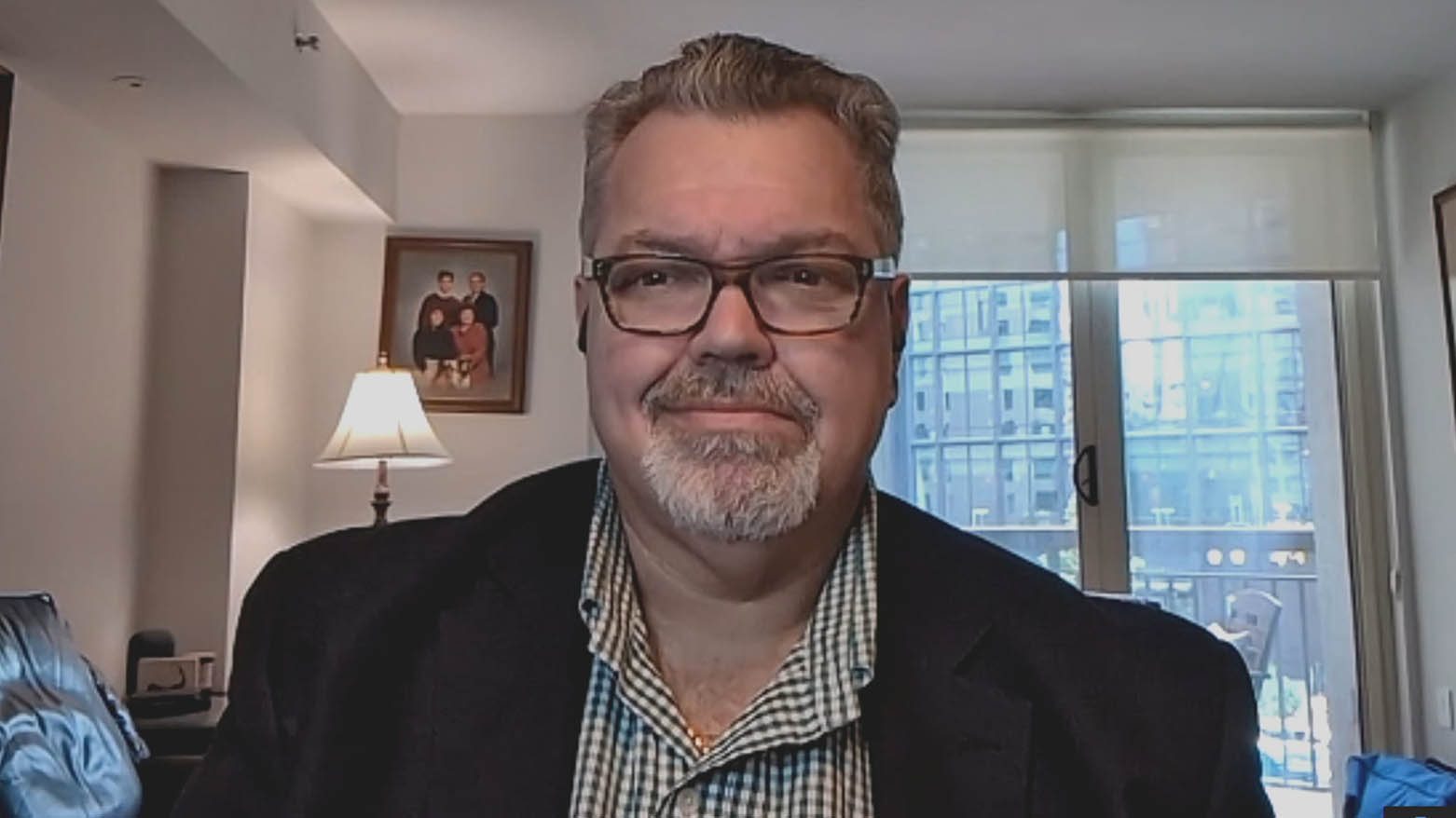U.S. Analyst Warns of Dangerous Fallout from Israel-Iran Escalation
U.S. analyst Justin Thomas told Kurdistan24 that Israel’s strikes on Iran risk deepening regional instability and pushing Tehran toward Russia and China. He warned of fallout risks, missed diplomacy, EU backlash, and rising pressure on Israel, Iraq, and the Kurdistan Region.

By Kamaran Aziz
ERBIL (Kurdistan24) – In an exclusive interview with Kurdistan24 in the early hours of Saturday, prominent American political analyst Justin Thomas issued a stark warning about the escalating conflict between Iran and Israel, cautioning that the current trajectory could deepen regional instability and alienate Washington’s traditional allies.
Thomas, who is based in Washington, D.C. and widely regarded for his analysis on U.S. foreign policy and Middle Eastern affairs, criticized the Israeli military’s recent strikes on Iranian nuclear facilities and the wider implications for diplomatic efforts and geopolitical alliances.
“Unless You Level Iran, You Can’t Stop This”
Opening the conversation with a sweeping assessment, Thomas said bluntly:
“Unless they completely have the ability to level Iran and destroy every aspect of the Iranian command and control and the Iranian military complex, I don't see a way that they're going to be able to stop this.”
He warned that pushing Iran further into strategic alignment with Russia and China—“two of the three major nuclear superpowers”—could pave the way for Tehran to procure sophisticated weaponry and nuclear technology from Moscow and Beijing. “What we have to look at here is the long-term downstream results of what's happening today,” he said.
Trump’s Shadow and Regime Change Speculation
Thomas also questioned whether the Israeli offensive was encouraged by the Trump administration in an attempt to either prevent nuclear proliferation or prompt regime change in Tehran.
“There's a fine line,” he noted. “If this was in fact a measure to get regime change, then you better hope that change happens. Because if it doesn't, all it's going to do is solidify the populace around the leadership.”
Rather than isolating Iran, Thomas argued, the strike has “isolated Israel,” especially as several Western allies expressed unease. “Even the British ambassador to the UN said while they support Israel’s sovereignty, this kind of unprovoked measure was unacceptable to the Crown.”
Regional Fallout and the Qatar Factor
Highlighting the dangers of radioactive fallout from attacks on southern Iranian nuclear facilities, Thomas noted, “That fallout could go downwind directly into Qatar. The nuclear reactors in the South are closer to Doha than to Tehran. That’s a problem.”
He further warned of possible Iranian retaliation against U.S. interests in the region, particularly the Al Udeid Air Base in Qatar. “This is a very stressful powder keg that’s been lit by Benjamin Netanyahu, and I'm not sure it makes anything safer,” he said.
Missed Opportunity for Diplomacy in Oman
Thomas emphasized the timing of Israel’s strikes as particularly problematic.
“You were literally 48 hours away from sitting down and trying to come up with a comprehensive deal in Oman,” he said, referencing negotiations that were undermined by the assassination of key Iranian figures. “If there's nobody left at the table, who do you negotiate with?”
He continued, “Why would Iran’s leadership now trust the U.S. to negotiate in good faith, especially when Trump has openly hinted at involvement in the Israeli attacks?”
Eroding European Support
Thomas pointed to growing European skepticism of Israel’s actions, citing criticism from British Labour leader Sir Keir Starmer. “I’m not sure Israel’s going to have the undying loyalty of the EU,” he remarked. “There’s going to be pushback.”
However, he expressed doubt that Russia or China would fully commit to military alignment with Iran. “They’ll play a cool hand, as they did in Syria,” he predicted.
Israeli Public Fatigue and Shifting Sentiment
Thomas suggested growing disillusionment among Israeli citizens might pressure Prime Minister Netanyahu.
“Every time Netanyahu launches another offensive, it brings troubles home,” he said. “If support for his wartime stance erodes, moderates might re-enter the picture and open the path for diplomacy.”
Still, much depends on internal dynamics within Iran. “How hard will the hardliners push? How much influence does President Pezeshkian actually have?”
The Nuclear Question
On the nuclear issue, Thomas was unequivocal:
“A nuclear weaponized Iran, nobody wants. That doesn’t help regional stability or global security.”
While acknowledging Netanyahu’s concerns about nuclear proliferation, Thomas insisted the JCPOA (Joint Comprehensive Plan of Action) was effective in keeping Iran’s ambitions in check. “The agreement served as a benchmark to say proliferation is off the table.”
But, he added, diplomacy is the only viable path forward. “Nobody wants to be the one to use a nuclear weapon—period. The only way forward is through moderate voices in both Israel and Tehran.”
Implications for Iraq, the KRG, and Jordan
Turning to the wider regional impact, Thomas warned that Baghdad is directly exposed. “All you have to do is go into the middle of Baghdad, look up at night, and you’ll see missiles flying overhead. That’s not a good feeling,” he said.
He also raised concerns for the Kurdistan Region, particularly over the potential closure of airports due to escalating tensions. “That could pose serious economic and strategic problems for the regional government in Erbil,” he noted.
Thomas concluded by calling attention to the role of Jordan’s King Abdullah II, whom he described as “a very cool hand.” According to the analyst, the monarch will likely play a crucial role in regional de-escalation efforts.